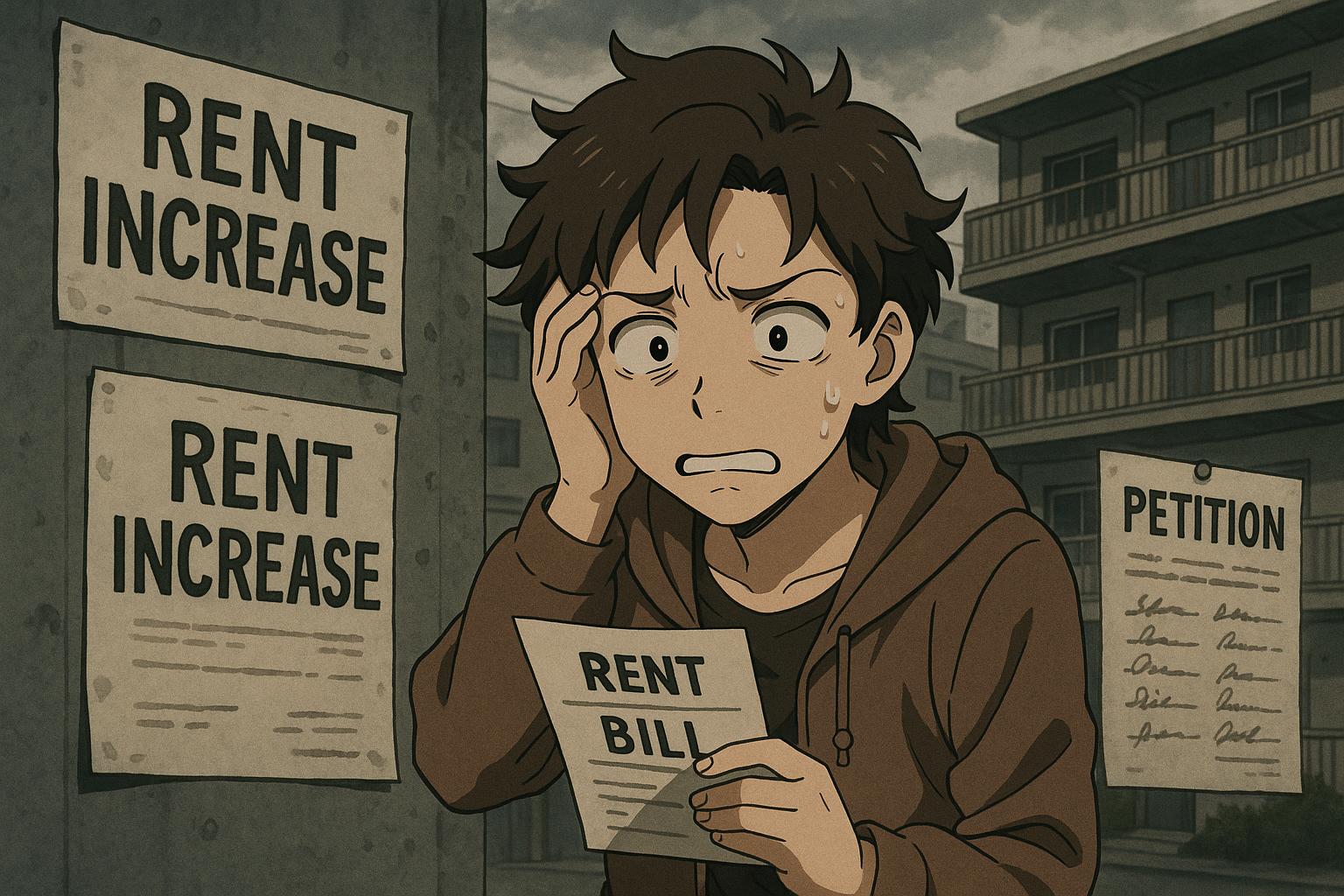An online petition initiated by the activist group Generation Rent, along with a private tenant, is currently facing challenges in achieving its goal of 50,000 signatures. The campaign, hosted on Change.org, has lingered around 45,000 signatures for several weeks, struggling to break the crucial threshold. Designed to advocate for reforms in the rental market, the petition underscores the urgent need for better protections for tenants against drastic rent increases.
The petition details the harrowing experience of a single parent who recently faced a £100 rent hike after only a month’s notice—an increase of nearly 20%. This case exemplifies a broader trend where tenants report sudden rent increases, often without justification. The statement articulates, “Right now, landlords can increase their tenants’ rent by whatever they want,” highlighting the distress pervasive among renters who live under the constant threat of significant financial strain.
Research from Generation Rent indicates that the mental health of renters is increasingly compromised, with nine out of ten respondents asserting that renting privately adversely affects their well-being. This concern echoes findings from a 2024 report released in collaboration with the National Survivor User Network, which revealed that a substantial portion of private renters—around 75%—worry monthly about affording their rent. Alarmingly, the report also found that nearly half of the respondents experienced anxiety related to their rental situation. This pattern of stress is not new; prior studies, like one led by Dr Kim McKee in 2018, showed that young people in the private rented sector frequently grapple with anxiety and depression stemming from financial insecurity and inadequate housing quality.
Further compounding these issues, a recent survey by Living Rent found that a significant number of tenants expect future rent hikes to follow the end of eviction bans, with many fearing increases of 10% or more. As landlords frequently cite "market conditions" as justification for rent increases, the disconnect from the realities faced by renters becomes evident. The average rent in the UK saw an 8.4% rise over the past year, starkly outpacing both inflation and wage growth.
There is also widespread concern regarding evictions; about 62% of private tenants expressed anxiety about the potential for eviction once the temporary moratorium was lifted. This dread often leads to a vicious cycle of poor mental health impacting tenants’ ability to secure stable housing, as families feel the pressure of impending financial crisis.
The Renters’ Rights Bill making its way through Parliament aims to reform some of these issues, including ending Section 21 evictions, which allow landlords to evict tenants without just cause. However, critics, including Generation Rent, argue that the bill fails to address the immediate crisis of shock rent increases. Although tenants may be able to challenge what is deemed an "unreasonable" rent hike, the criteria for such decisions are based on the premise of potential re-letting prices, rather than the actual financial circumstances of current tenants.
The plea from Generation Rent highlights a need for caps on rent increases, advocating that landlords should not be permitted to raise costs beyond the rate of inflation or wages. This reform is portrayed as essential to ensuring families retain their homes without falling into financial despair.
As the petition struggles to gain momentum, it reflects a wider societal issue within the private rental sector—one that demands government intervention to protect renters from market volatility that jeopardizes not only their financial security but also their mental and physical health.
Reference Map:
- Paragraph 1 – [1], [5]
- Paragraph 2 – [2], [4]
- Paragraph 3 – [3], [6]
- Paragraph 4 – [1], [5]
- Paragraph 5 – [2], [4]
- Paragraph 6 – [6], [7]
- Paragraph 7 – [1], [6]
Source: Noah Wire Services
